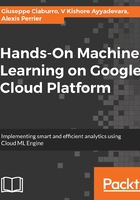
Databases supported
With Google Cloud SQL, it is possible to create two types of relational databases:
- MySQL
- PostgreSQL
MySQL is an open source relational database management system (RDMB) available for free using Structured Query Language (SQL). SQL is the most popular language for adding, accessing, and managing content in a database. It is known for its rapid processing, proven reliability, ease, and flexibility of use. MySQL is an essential part of almost all open source PHP applications.
PostgreSQL is an advanced database system with a long history behind it. It is available for a wide range of platforms and is used in microscopic embedded systems as well as in huge multi-terabyte systems. PostgreSQL has earned an excellent reputation over the years for its innovative features, data integrity, security, and reliability.
PostgreSQL support is still in beta, so features such as replication or high availability are not available. The instances of the platform they support MySQL 5.7 or PostgreSQL 9.6 databases in the cloud and allow for up to 208 GB of RAM, 32 CPUs, and 10 TB of storage. The data, encrypted on Google networks and within tables and backups, are accessible from their applications created through the app engine (written in Java, Python, PHP, Node.js, Go, or Ruby), through clients MySQL/PostgreSQL using standard protocols, or even through external applications, with the possibility of using secure connection protocols, such as SSL.
In general, there are no noticeable differences between the functionality provided by the standard MySQL/PostgreSQL instances locally and those provided by the Cloud SQL instances. In particular, we remind you that it is impossible to create new functions in MySQL using the CREATE FUNCTION statement and the lack SUPER (MySQL) and SUPERUSER (PostgreSQL) privileges.